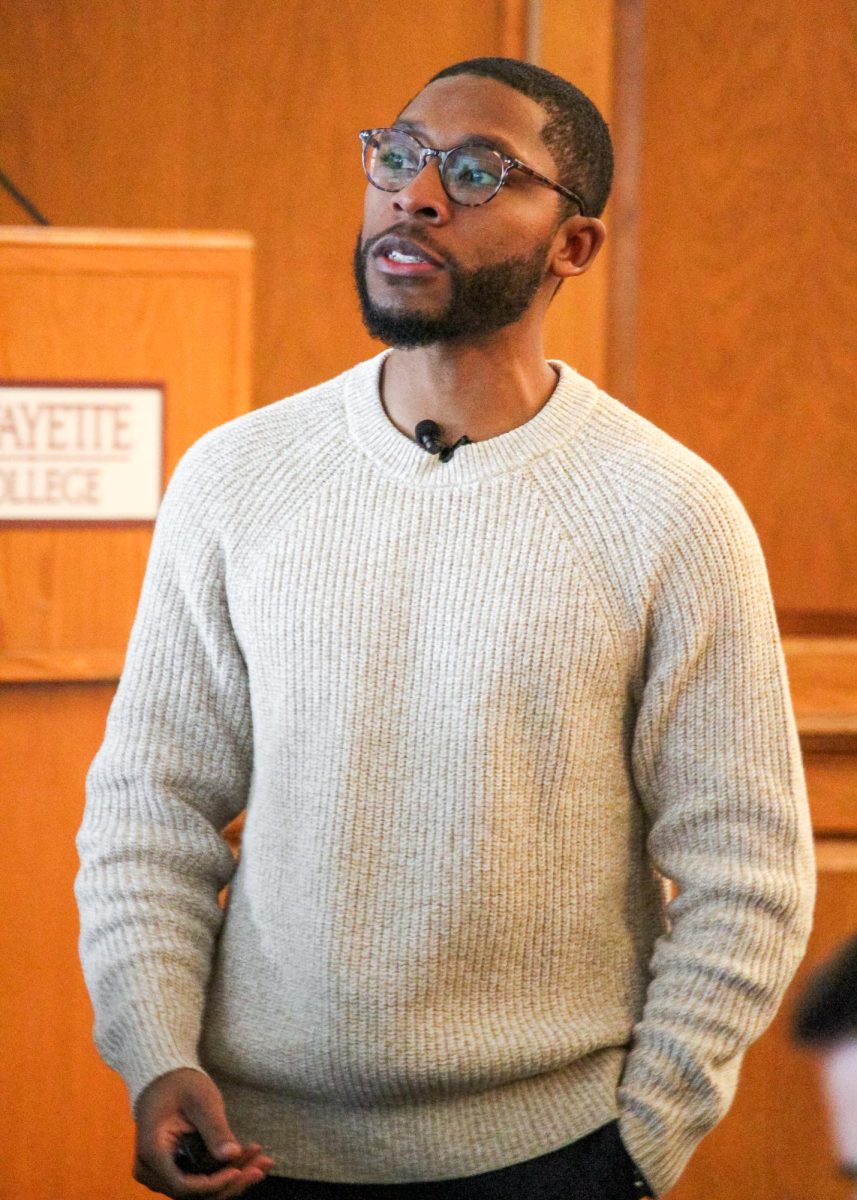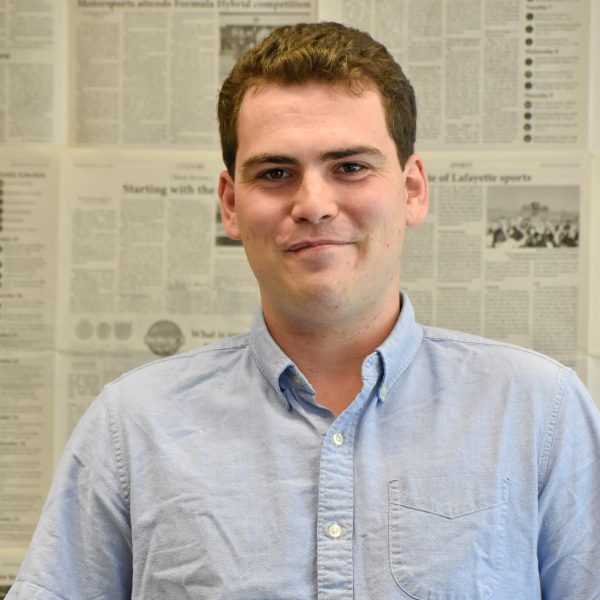A former Forbes 30 under 30 recipient spoke at Lafayette College on Saturday as the keynote speaker of the 2025 RAISE Up Inclusive STEM Retreat.
Kenneth Harris, a 32-year-old aerospace engineer, began working at NASA at just 16 years old and participated in multiple NASA satellite missions — but what Harris really wanted students to know was how important mentorship and networking in the STEM industry was.
“If I can champion better STEM outreach, that’ll help us move the needle forward,” Harris said after the event. “I look forward to engaging with students in that capacity, and I think that Lafayette is doing that really well.”
The event, a part of a full-day program led by the Hanson Center for STEM Inclusivity, was in Marquis Hall, where around 50 students, alumni and faculty gathered to listen as Harris told stories of his career. He began by saying he was “bit by the engineering bug” and continued on to bounce between highs and lows, settling with a theme of “continual adjustment.”
“I thought his story would be a powerful one for students to hear about,” said Wendy Hill, the director of the Hanson Center, who brought in Harris for the event.
Harris highlighted the importance of mentorship during his 15-minute keynote speech. He remarked on the roles of both mentors and mentees and the significance of finding the right fit for each.
“As a mentor, you can’t be shy around telling the unapologetic truth of your story, and that includes your failures as well as your success stories,” he described.
Harris even outlined a story of his own college missteps. He admitted to nearly “flunking out” of school as a mechanical engineer undergraduate at the University of Maryland.
“I think determination, grit, drive and the people you surround yourself with are really going to be some of the most important factors when going through your academic studies,” he said.
After the keynote, the event moved to the Rockwell Integrated Sciences Center, where workshops and a Q&A with Harris took place. Students and faculty were able to ask Harris questions regarding his career and his further thoughts on mentorship. Then, he stuck around to speak individually with attendees and visit some workshops.
“One thing the students benefited from was his ability to connect with them and faculty on a one-on-one level and in smaller groups,” said Rachel Kimball ‘26, a student director at the Hanson Center who helped organize the event.
Similar to the event, the workshops were run by student organizations. Among those represented included Women in Economics, Out in STEM, National Society of Black Engineers and Society of Women Engineers. The workshops focused on diversity, navigating careers and “ideas of perfection.” Harris said he attended some of the student presentations.
“One of the best takeaways was that the students had that intentionality and that heart to put something like that together,” Harris said.
Andreas Pelekis ’26 contributed reporting.













































